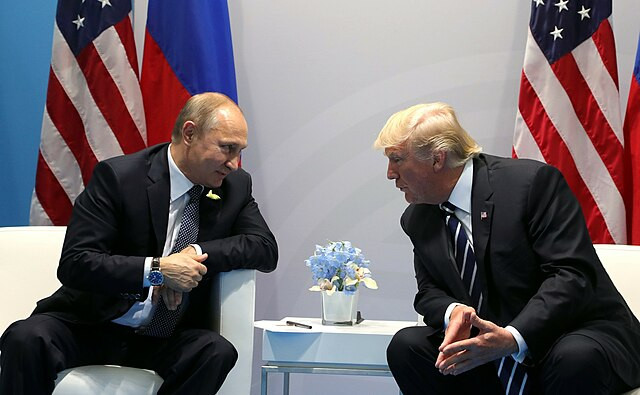President Donald Trump announced Monday that Russia and Ukraine would begin "immediate" negotiations toward a ceasefire, following a two-hour phone call with Russian President Vladimir Putin. The statement marks the most significant U.S. effort yet under Trump's second term to bring an end to the three-year war, amid mounting Western pressure and continued battlefield violence.
"Negotiations between Russia and Ukraine will begin immediately," Trump posted on Truth Social, adding that the Vatican, "as represented by the Pope," had expressed interest in hosting the talks. There has been no confirmation from Kyiv regarding any agreement to begin talks. A source familiar with the matter said Ukrainian President Volodymyr Zelenskyy spoke "for a few minutes" with Trump prior to the Putin call.
Putin, speaking from the Black Sea resort of Sochi, said that Russia was "ready to work with the Ukrainian side on a memorandum on a possible future peace accord." He described his conversation with Trump as "very informative and very open," and said their agreement included efforts "to eliminate the root causes of this crisis."
"We just need to determine the most effective ways to move towards peace," Putin said. "If appropriate agreements are reached, there could be a ceasefire."
The call came days after Russian and Ukrainian envoys met in Istanbul for their first direct negotiations since 2022. Those talks failed to produce a truce, leaving the U.S. to step in more directly. Vice President JD Vance, speaking to reporters in Rome, emphasized that "the president's going to say to President Putin: 'Look, are you serious? Are you real about this?'"
Vance warned that the U.S. could eventually withdraw support if no genuine progress is made. "We're going to try to end it, but if we can't end it, we're eventually going to say: 'You know what? That was worth a try, but we're not doing any more.'"
Despite Trump's push for diplomacy, criticism persists over his perceived leniency toward Moscow. Former U.S. Ambassador to Ukraine Bridget Brink wrote in a recent op-ed that Trump's approach "has been to put pressure on the victim, Ukraine, rather than on the aggressor, Russia," adding, "peace at any price is not peace at all - it is appeasement."
Meanwhile, European leaders including those of Britain, France, Germany, and Italy spoke with Trump ahead of the Putin call. French President Emmanuel Macron urged Putin "to take peace talks seriously," and reiterated that Moscow should accept a 30-day unconditional ceasefire proposed by Trump and supported by Europe.
Trump said in a Truth Social post that "a ceasefire will take place, and this very violent war, a war that should have never happened, will end." He claimed more than 5,000 Russian and Ukrainian soldiers are dying each week, though those figures have not been independently verified.
Putin has not indicated a willingness to meet Trump in person, and Kremlin spokesman Dmitry Peskov stated that any such meeting would "largely depend on what they themselves decide." Peskov added that Russia "highly values" U.S. involvement and said, if the U.S. can "help to achieve our goals through peaceful means, then this is indeed preferable."






